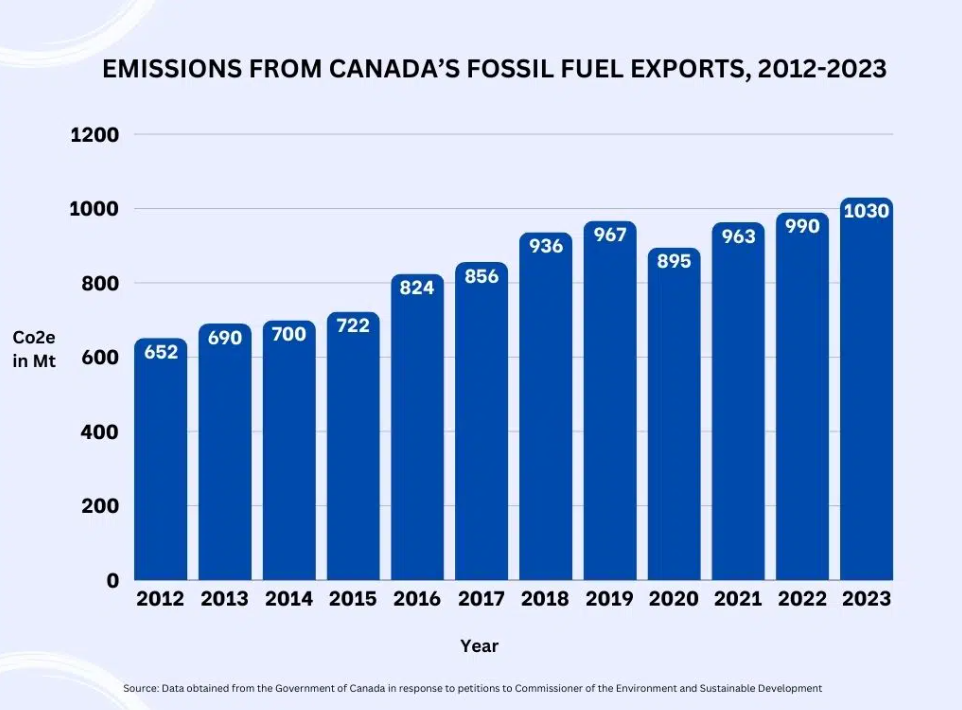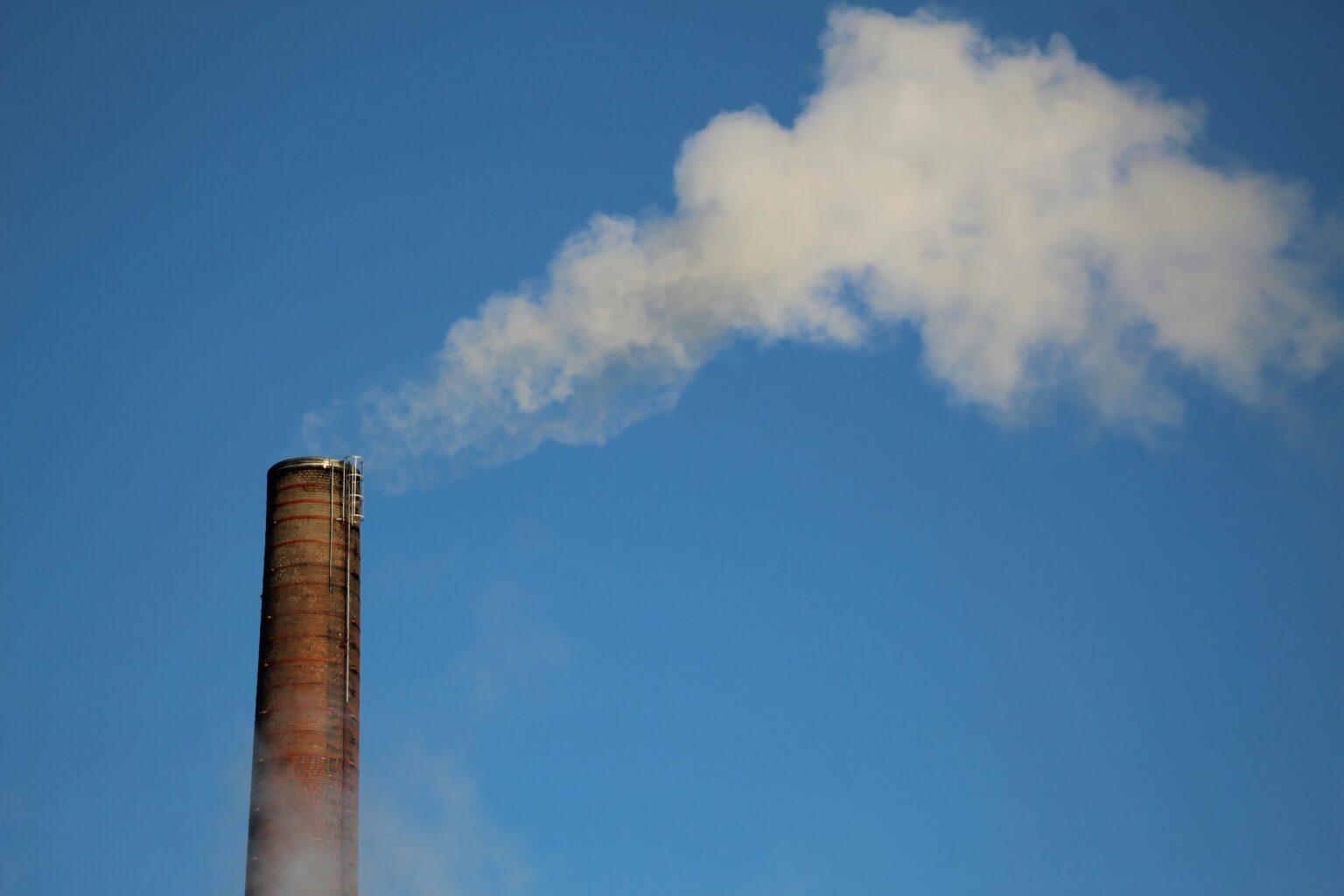Greenhouse gas emissions from Canadian fossil fuel exports ballooned to record levels in 2023, according to data uncovered by Ecojustice and Environmental Defence.
Exported emissions are created when the fossil fuels that Canada produces and exports are burned in other countries.
Between 2012 and 2023, export emissions increased by 58 percent, and have now exceeded 1,000 megatons per year. With the exception of 2020, when export-related emissions dipped slightly due to reduced production related to the COVID-19 pandemic, Canada’s downstream export emissions have increased for every year Prime Minister Justin Trudeau has been in office. In 2018, Canada’s per capita exported greenhouse gas emissions were eight times higher than that of the United States, at about 25 tonnes per Canadian, compared with just 3 tonnes per American.
Subscribe to our newsletter
Stay up to date with DeSmog news and alerts
“Canada’s emissions are not confined within our borders, nor are their impacts,” Ecojustice staff lawyer Reid Gomme said in a statement. “The rise in exported emissions diminishes Canada’s credibility as a climate leader and ignores our responsibility to align our actions with a climate-safe future.”
Ecojustice and Environmental Defence petitioned Environment and Climate Change Canada to release the data on downstream emissions, which was not previously available.
The new findings come on the heels of the Trudeau government’s proposed emissions cap regulations, which proposes that Canada’s energy industry reduce emissions by 35 percent below 2019 levels, by 2030. That proposal earned a sharp rebuke from Alberta Premier Danielle Smith, who floated a potential legal or constitutional challenge. Alberta is Canada’s largest producer of oil and gas, and under Smith’s leadership has opposed virtually every effort to reduce emissions. Smith’s government has spent millions on advertising campaigns designed to oppose federal emissions caps, has issued a moratorium on the development of renewable energy systems in the province, and recently passed a resolution denying climate change, abandoning their net zero commitments, and celebrating carbon dioxide as an essential nutrient for life. Smith has repeatedly vowed to oppose any and all efforts by the federal government to lower emissions.
Since 2012, Canada’s exported emissions have increased by 378 million tonnes of carbon dioxide equivalent. During the same period of time, domestic emissions have only been reduced by 42 million tonnes. In 2023, Canada’s domestic emissions were calculated at 702 million tonnes, while downstream export emissions totaled 1.03 billion tonnes.
Canada’s new emissions cap regulations won’t fix this problem, as the cap is only on domestic greenhouse gas emissions from the production of oil and gas in Canada. Because it isn’t a production cap, Canada could meet its own emissions cap goals while continuing to export fossil fuels that further exacerbate the global emissions problem.

The new data undermines Canada’s commitment to cap emissions and transition away from fossil fuels, made at COP28 in 2023, said Environmental Defence campaigner Julia Levin. Under the Paris Agreement, Canada is not required to report export emissions, the statement noted.
Despite the Trudeau government’s claims of global climate leadership, Canada continues to break records exporting fossil fuels. The Trans Mountain pipeline project — which the Trudeau government spent $34 billion completing — is responsible for record-breaking oil exports to American refineries. The government of British Columbia, which has also claimed climate leadership, was found to have bent its own rules to allow the construction of a 900-kilometer fracked gas pipeline. And despite the Trudeau government’s promise to terminate thermal coal exports from Canada by 2030, exports increased again in 2023. Canada’s thermal coal exports are now 20 percent higher than when the Trudeau government announced the planned phase out in 2020, and double the amount from 2015 when Trudeau was first elected.
The continued increase in export emissions under Trudeau’s watch contrasts sharply with Trudeau’s own statements on the matter from 2015, when he said “the atmosphere doesn’t care where carbon is emitted.”
“Fossil fuels are causing unnatural climate disasters that are impacting communities across Canada and around the planet,” Levin said.
“The result is skyrocketing pollution levels that will fuel further disasters. Words need to turn into action, and governments in Canada must get serious about moving off of fossil fuels.”
Subscribe to our newsletter
Stay up to date with DeSmog news and alerts







